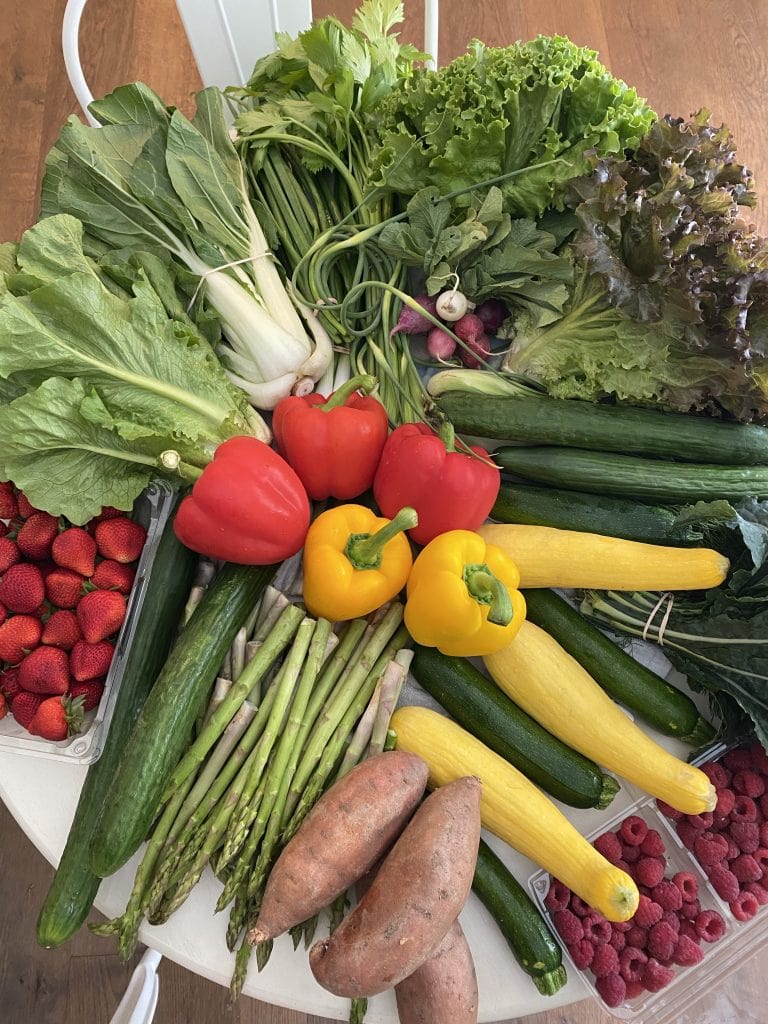
I originally started writing this post at the start of the New Year (how long ago does that feel?!). As a type-A, goal-oriented wellness enthusiasts (and health coach) New Year’s Resolutions give me all sorts of warm and fuzzy feelings. This year I was excited about the prospect of a fresh start not only in the new year, but a new DECADE.
Fast forward 5 months: not gonna lie, I didn’t see this coming. And by “this” I mean the current state of our word. But with dramatic changes and a new normal comes an opportunity to reflect on where we are and to create goals for the future. Today I want to talk about being kind to ourselves when setting resolutions while also framing them in a way that sets us up for success.
Be Kind and Reflect on the WHY
Setting goals is a time to reflect on the past year, where we are, and where we want to go. But we’re not always super nice about it. Often we start thinking about resolutions by judging our bodies and our habits. We want to lose “x” number of pounds, stop smoking, quit eating junk, better manage stress, etc.
When thinking about the areas in your life you want to improve, take a gentle and reflective approach. When you write your goal, think about what contributed to that habit/behavior/state developing. Are you eating junk food because you’re stressed? Is it hard finding healthy quick options when traveling? Have you grown up eating packaged food and you’re not even sure how to eat “healthy”? Getting to the WHY behind how we got here helps to identify specific areas to focus on improving.
Now think about why you want to achieve this goal. What will your life look like once you’ve quit that habit or lost that weight? Do you want to lose weight so that you feel comfortable and confident in your clothes? Do you want to have more energy to play with your kids? Are you pre-diabetic and ready to feel empowered instead of stressed about your health? Envision how awesome it will feel once you’re there to stay motivated.

Add
In general, it’s way more fun adding something than having it taken away. It also just feels more optimistic and positive. By focusing on adding positive behaviors, habits, or foods there tends to be less time or space for the negative counterparts.
There are plenty of examples for ways to add to achieve your goals. If you want to lose weight, try adding one more serving of vegetables per day, drinking more water, or adding steps by taking the farthest parking space. Trying to manage your stress? Add 5 minutes of meditating to your day, start a gratitude journal, or aim to get an extra half hour of sleep each night.
Replace
Stopping something cold turkey is hard! When there’s a behavior or habit or food we decide to cut out it leaves a void. It also draws attention to the thing we’re trying to avoid. If you decide you want to stop smoking suddenly you’re left with time to think about how nice it would be to take a break and smoke. But what if we focused on replacing that habit or food or behavior with something appealing?
Often smoking is a way to deal with stress or take a quick time-out in the day. How cool would it be if employers offered meditation or movement breaks instead of smoking breaks during the day? To get control of your sugar cravings try swapping processed treats for fruit or a healthier sweet treat. For soda addictions, try adding fruit juice to seltzer and gradually decrease the amount of juice needed.

Reduce Friction
Setting goals is easy but making them happen is another story. Last year I said “I’m going to meditate for at least 10 minutes per day”. Did I do that? No I did not. I read about the incredible benefits of meditating and it truly was something I genuinely wanted to add into my routine. So what was the hold up? In order to make this habit finally stick I needed to look back and identify the friction that had prevented me from making this (seemingly) simple practice stick.
On many days I didn’t feel like I possibly had the time to sit for 10 minutes to meditate. And frankly, sometimes I just wasn’t in the mood. My mind was too busy, I had too many things on my to-do list, and I didn’t want to sit around “wasting” time thinking about the things I had to do. That was why I needed to meditate and yet it’s also part of the reason I wasn’t! Just trying to be better wasn’t working, so this year I broke down the goal by identifying the hurdles and creating a plan to overcome them:
- Sometimes 10 minutes feels impossible. Why does it have to be 10 minutes? To be honest, one reason was that most of the Headspace lessons are 10 minutes and I wanted to make it through the courses. I decided to start with telling myself all I had to do was 1 minute and to increase that amount each week. Turns out right off the bat I ended up doing even longer.
- Sometimes I frankly don’t feel like it. Rather than think of it as an obligation on my to-do list I needed to start re-framing my attitude towards meditating. Really meditating is kind of a luxury….basically a mini brain vacation. When I started to think of a few minutes of meditation as a treat in my day I was suddenly a whole lot more likely to make it happen.
- It hadn’t become a part of my routine. I was trying to fit meditating in whenever I had 10 free minutes. You know when that was? Never. When I finally attached it to something I did everyday (the end of my workout) it naturally also became a part of my routine.
This week re-evaluate your goals or create new ones using these 4 concepts.
Now that you’re focused on why you have your goals and what actions you can take to achieve them, it’s important to have a way to stay accountable. This week on Instagram stories I shared the monthly and weekly reflections I started doing this year. They have been hugely helpful in keeping me focused on the goals and intentions I set for the year. The practice has also helped me to catch when bad habits are starting to form so that I can call myself out and reverse them early. I’ll be sharing this step on Part 2 of this post. But if you need a sneak peak, they’re saved on my Instagram highlights under “Goal Setting”.
What are your goals for the year? If you’re looking for more support in taking small steps towards achieving your goals, that’s what I’m here for! Sign up for a 50 minute complimentary health consult. A health consult is a casual chat where I listen to your specific health goals (on and off the plate) and share how we could work together to optimize your performance.


Hey! I really enjoyed reading this blog, it makes me want to approach my life differently and motivates me to be a better individual. 🙂
That makes me so happy to hear, Jennifer! Thanks for reading 🙂